Disclosure: This article contains affiliate links. We may earn a commission from purchases at no extra cost to you, which helps our travel content.
The first time I stepped beyond Yamoussoukro's imposing basilica and presidential palace, I discovered what few travelers ever see – a surprisingly wild Côte d'Ivoire landscape pulsing with life and adventure. While most visitors breeze through this political capital focused solely on its architectural marvels, I've spent weeks exploring the surrounding natural escapes that offer a completely different rhythm. From crocodile-filled lakes to hidden forest reserves, these outdoor adventures around Yamoussoukro reconnected me with the primal energy that first drew me to West Africa – a perfect counterbalance to the city's ordered grandeur.
Lake Kossou: Wild Waters Beyond the City
Just 40km from Yamoussoukro's concrete and gold-leaf grandeur lies Lake Kossou, a massive man-made reservoir that's become my personal sanctuary whenever the city's energy becomes too intense. Created in the 1970s when the Bandama River was dammed, this vast inland sea has developed its own unique ecosystem and rhythm.
On my third day exploring the lake, I hired a local fisherman named Konan who took me to the lake's western shores where the water stretches toward the horizon like an inland ocean. We set off before dawn in his wooden pirogue, the surface mist creating psychedelic patterns as the rising sun burned through. Konan showed me hidden coves where massive Nile perch lurk beneath the surface – perfect for catch-and-release fishing that tests every ounce of your strength.
The best way to experience Kossou is by staying at one of the small fishing camps along its shores. I brought my ultralight hammock system which proved perfect for sleeping under the stars while listening to hippos grunt in the distance. For those less inclined to rough it, a few basic eco-lodges have sprung up catering to Abidjan weekenders.
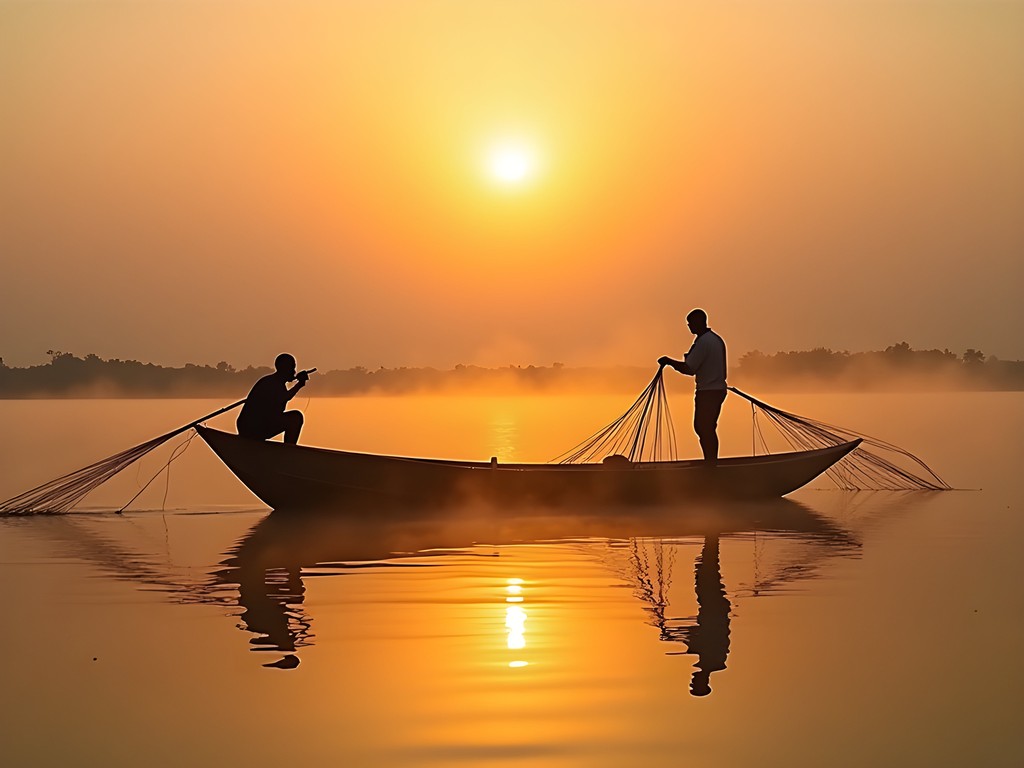
💡 Pro Tips
- Hire a boat and guide from Sakassou village for the best access to the lake's western reaches
- Pack a high-quality water filter as potable water is scarce around the lake
- Visit during December-February when water levels are lower and wildlife concentrates around the remaining water
Marahoué National Park: The Forgotten Wilderness
Marahoué National Park sits like a green lung between Yamoussoukro and Bouaflé, yet remains criminally undervisited. This 101,000-hectare reserve represents one of West Africa's last transitional zones between savanna and forest ecosystems – a biological treasure despite facing significant conservation challenges.
Accessing Marahoué requires determination and local connections. After three failed attempts to find a reliable guide in Yamoussoukro, I connected with Amadou, a former park ranger now working independently with conservation-minded travelers. We spent three days hiking through the park's northern sector, where remnant forest patches harbor elephants, various monkeys, and incredible birdlife.
The sad reality is that Marahoué faces intense pressure from poaching and agricultural encroachment. Yet experiencing what remains is both humbling and crucial – tourism dollars provide one of the few economic incentives for protection. I tracked wildlife using my thermal monocular, which proved invaluable for spotting nocturnal species without disturbing them with artificial light.
Despite the challenges, moments of pure magic await the persistent visitor. Sitting silently as a family of olive colobus monkeys moved through the canopy overhead, their forms silhouetted against the afternoon light, I felt that rare sensation of being completely present in a moment of wild perfection.
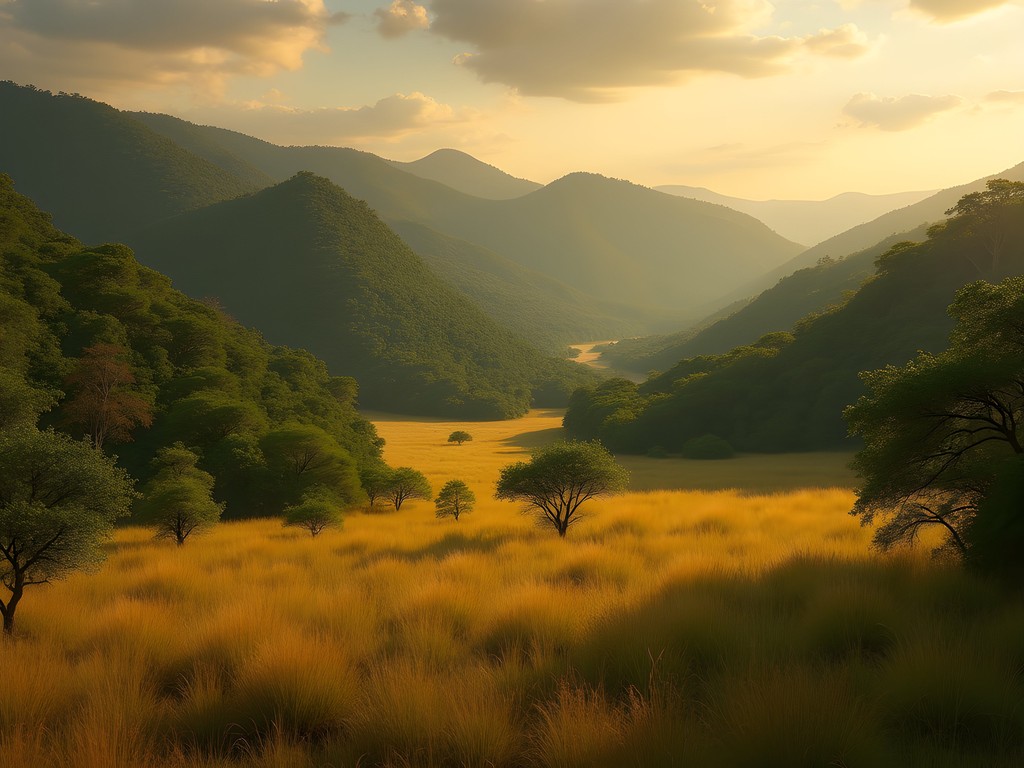
💡 Pro Tips
- Contact the Institut de Recherche Écologique in Yamoussoukro for current park conditions and guide recommendations
- Bring all supplies including drinking water as there are no facilities within the park
- Consider making a donation to local conservation efforts as entrance fees rarely reach actual protection initiatives
Sacred Crocodile Lakes: Ancient Guardians of Yamoussoukro
Perhaps Yamoussoukro's most accessible natural attraction lies hidden in plain sight – the network of small lakes surrounding the late President Houphouët-Boigny's palace that house hundreds of sacred crocodiles. While technically within city limits, these lakes offer a fascinating glimpse into the intersection of nature and traditional spiritual practices.
The most famous crocodile lake sits adjacent to the president's former residence, where hotel staff perform regular feedings that draw tourists. But venture beyond this choreographed experience to the lesser-known lakes scattered throughout the city's outskirts, and you'll discover more authentic encounters.
My friend Marcel, whose grandfather served as a spiritual advisor to the former president, took me to a small lake in the city's northwestern edge where local Baoulé people still leave offerings to the crocodiles. We sat silently under a massive kapok tree as several enormous Nile crocodiles, some surely over 70 years old, glided through the dark waters.
"These are not just animals," Marcel explained. "They carry the spirits of ancestors. When they accept an offering, it means the ancestors are pleased."
Photographing these prehistoric-looking creatures requires patience and the right equipment. My telephoto zoom lens allowed me to capture detailed images from a safe distance. For protection during rainy season explorations around the lakes, I relied on my waterproof dry bag to keep electronics and valuables safe.
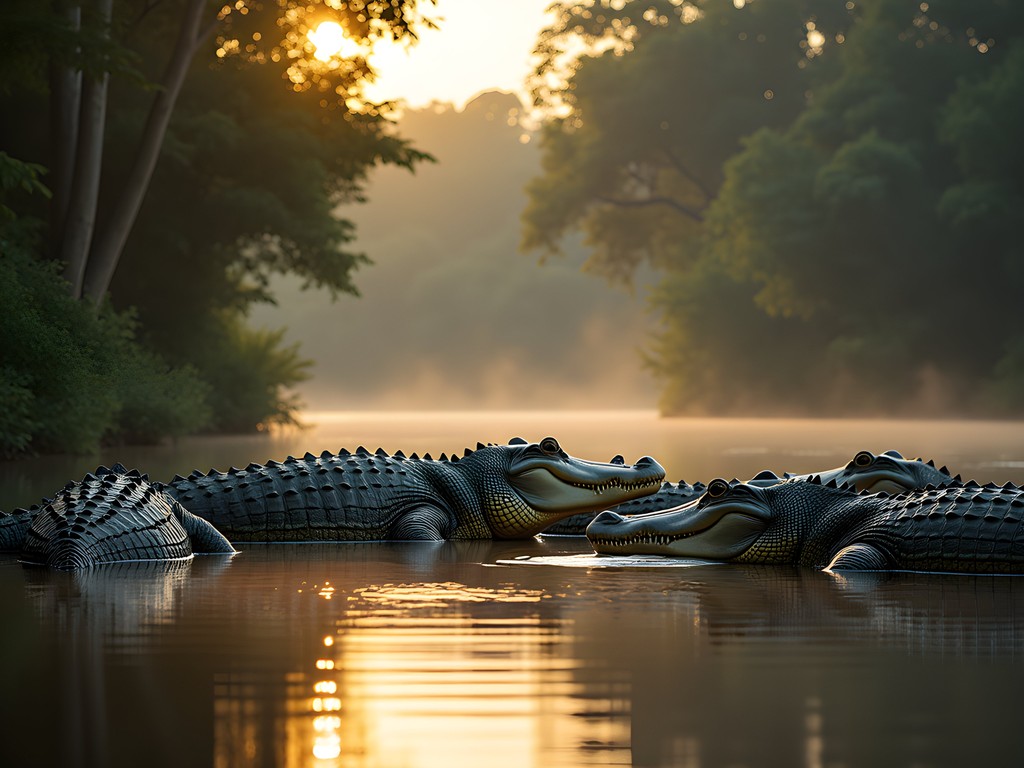
💡 Pro Tips
- Never approach the crocodiles closely, regardless of how docile they may appear
- Visit the lakes in early morning or late afternoon when the crocodiles are most active
- Show respect for local spiritual practices – ask permission before photographing people making offerings
N'Zi River Adventures: Rapids and Wilderness Camping
For those seeking pure adrenaline, the N'Zi River east of Yamoussoukro offers the country's best white-water experiences during the rainy season (May-July and October-November). This tributary of the Bandama River carves through forested hills before eventually joining Lake Kossou, creating a perfect multi-day adventure route.
I connected with Aventure Côte d'Ivoire, a small outfit run by Ibrahim, a Yamoussoukro native who spent years guiding in Morocco before returning to showcase his homeland's potential. We assembled a three-day expedition: two days navigating the river's class II and III rapids followed by a final day of wilderness camping where the river widens approaching the lake.
The journey begins with relatively gentle flows perfect for beginners, but by afternoon of day one, we were navigating technical rapids that demanded full concentration. Between the adrenaline rushes, we drifted through corridors of pristine gallery forest where hornbills and turaco birds flashed brilliant colors overhead.
Our wilderness camp on a sandy riverside beach became the trip's highlight. As night fell, Ibrahim produced a small portable speaker from his dry bag, and we connected it to play some ambient electronic tracks that perfectly complemented the natural symphony around us. With no light pollution, the stars emerged with astonishing clarity – I captured the Milky Way using my travel tripod for long exposures that revealed the river's path under starlight.
By morning, mist clung to the water surface as we prepared a simple breakfast of local fruits and coffee. The final paddle to our extraction point took us past small fishing communities where children ran alongside the river, waving and calling out greetings.
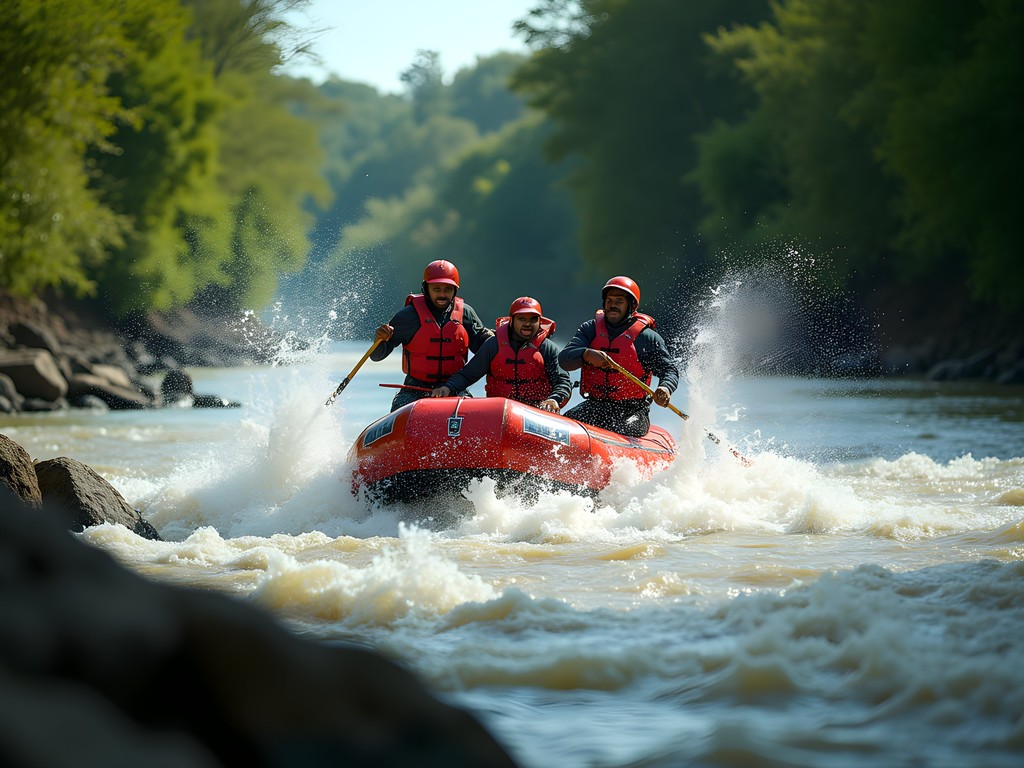
💡 Pro Tips
- Book river adventures at least a month in advance as equipment and qualified guides are limited
- Bring quick-dry clothing as you'll be soaked repeatedly throughout the journey
- Pack high-energy snacks as the physical demands of paddling can be surprising for beginners
Forest Meditation Retreats: Finding Stillness in Yamoussoukro's Outskirts
My journey through Côte d'Ivoire's natural spaces wouldn't be complete without addressing the inner journey that always accompanies my travels. In the small forest fragments that still survive on Yamoussoukro's western periphery, I discovered perfect spaces for meditation and sound healing practices that reconnected me to the rhythms of the natural world.
After weeks of intense exploration, I dedicated three days to stillness in a small clearing I found about 7km from the city center. Here, massive silk-cotton trees create natural temples where the morning light filters through in ethereal patterns. I brought my travel meditation cushion which proved perfect for extended sitting practices on the forest floor.
The forest soundscape here is extraordinary – layers of insect buzzing provide a constant drone that resembles the tanpura base note in Indian classical music, while bird calls create complex melodies above. I recorded these natural soundscapes using my field recorder to incorporate into music productions back home.
For those seeking more structured retreat experiences, I discovered a small Franco-Ivorian couple who host forest bathing sessions on their property about 15km from Yamoussoukro. Marcel and Sophie combine traditional Baoulé forest wisdom with Japanese shinrin-yoku practices, creating uniquely West African mindfulness experiences for small groups of travelers.
"The forest has its own consciousness," Marcel told me as we sat listening to the afternoon rain patter on broad leaves overhead. "When you quiet yourself enough, you begin to hear what it's saying."
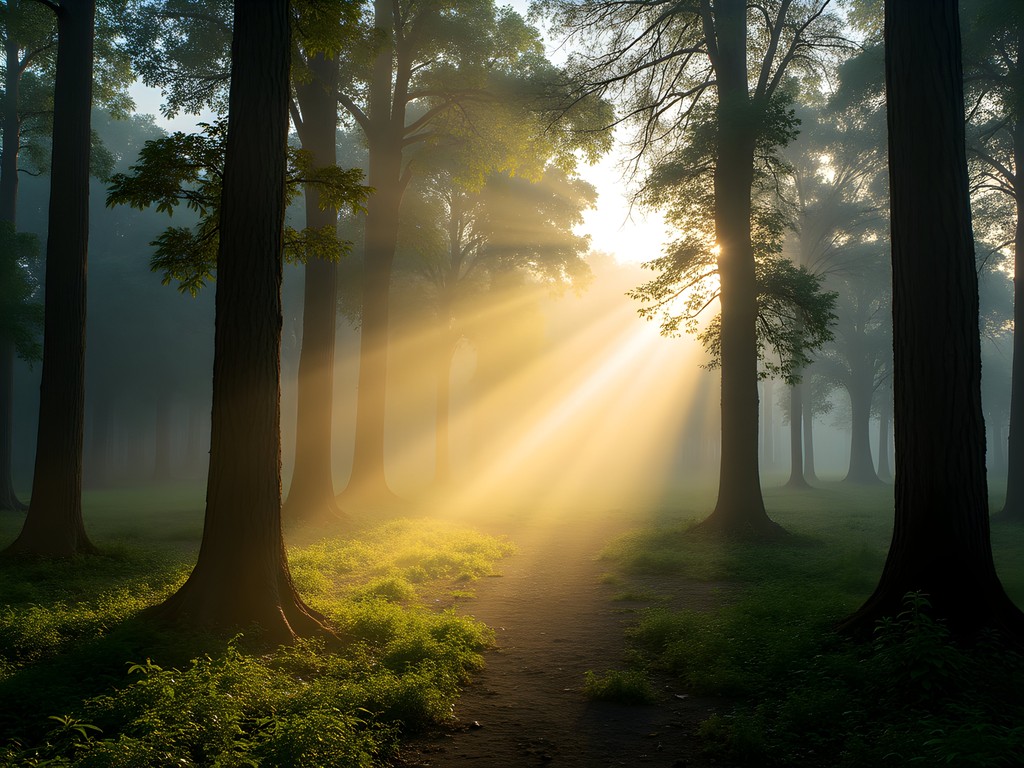
💡 Pro Tips
- Respect traditional forest areas which may have spiritual significance to local communities
- Bring natural insect repellent as mosquitoes can be intense, especially during dawn and dusk transition times
- Practice silence when possible – the subtle sounds of the forest reveal themselves only when human noise subsides
Final Thoughts
As my week of exploring Yamoussoukro's natural escapes came to an end, I found myself forever changed by these hidden corners of Côte d'Ivoire. While the basilica and presidential palace rightfully draw visitors with their architectural grandeur, it's in these wild spaces that I discovered the country's beating heart – a rhythm that continues despite urbanization and environmental challenges.
The contrast between human monuments and natural wonders creates a perfect harmony here. One afternoon you might marvel at the world's largest church, and the next morning find yourself drifting on Lake Kossou as fish eagles dive for their breakfast nearby. This juxtaposition embodies what makes travel truly transformative.
If you venture to Yamoussoukro, I urge you to allocate at least half your time to these natural escapes. Hire local guides, support conservation initiatives, and approach these spaces with reverence. The sacred crocodiles, remnant forests, and flowing waters around the city have witnessed centuries of human history – they have much wisdom to share with those patient enough to listen. As Marcel told me on our final forest walk: 'Nature speaks a universal language. You just need to remember how to hear it.'
✨ Key Takeaways
- Yamoussoukro offers surprising natural escapes beyond its famous architectural monuments
- Local guides are essential for accessing the most pristine areas safely and respectfully
- The contrast between monumental architecture and wild spaces creates a uniquely balanced travel experience
📋 Practical Information
Best Time to Visit
November-February (dry season) for most activities; May-July for river adventures
Budget Estimate
$30-50/day excluding guides and specialized equipment
Recommended Duration
Minimum 5-7 days to properly explore the natural areas
Difficulty Level
Moderate To Challenging Depending On Activities Chosen

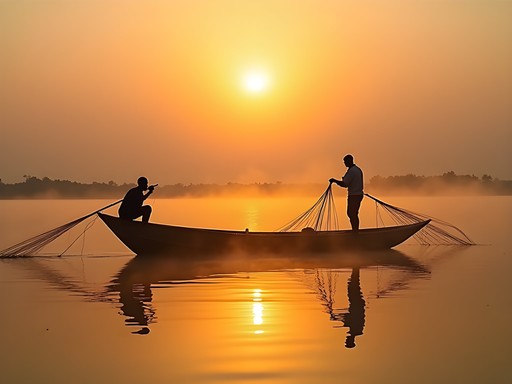
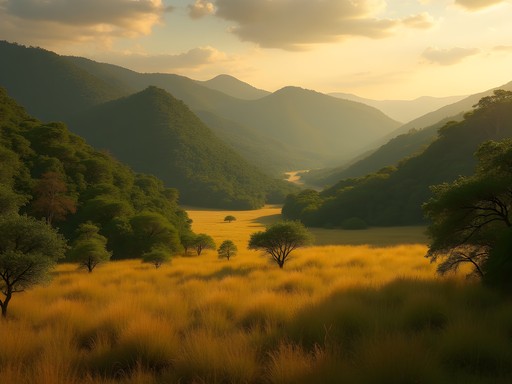
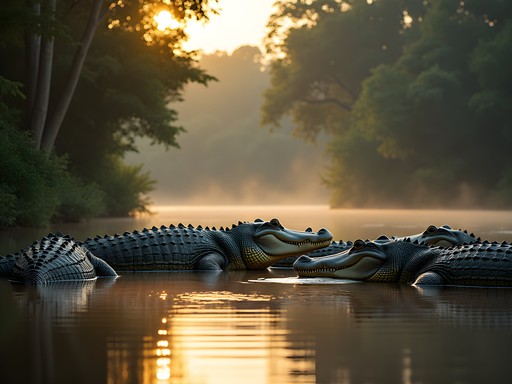
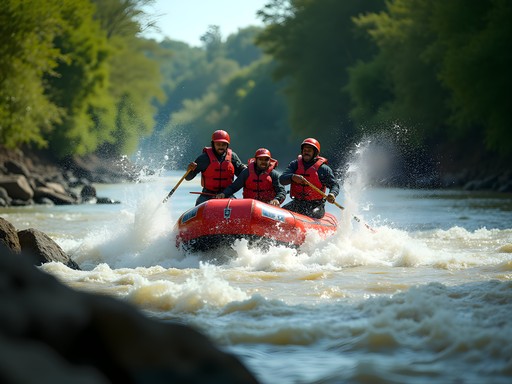
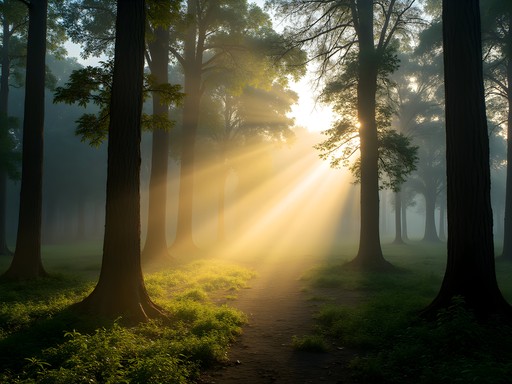


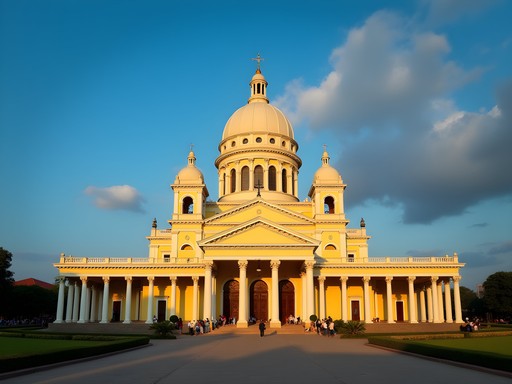
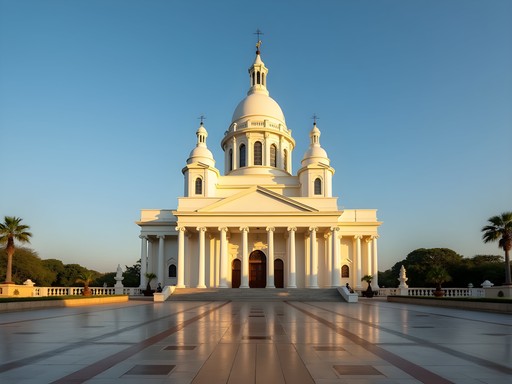
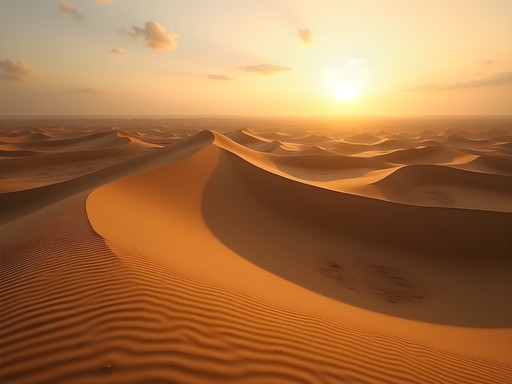
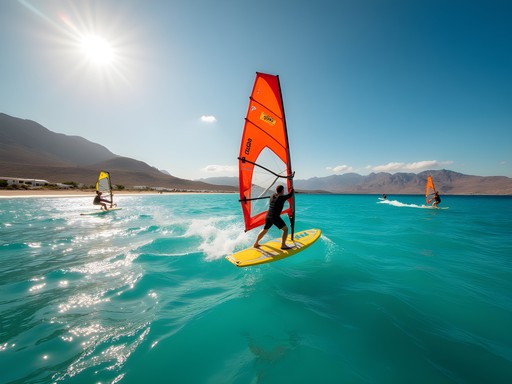
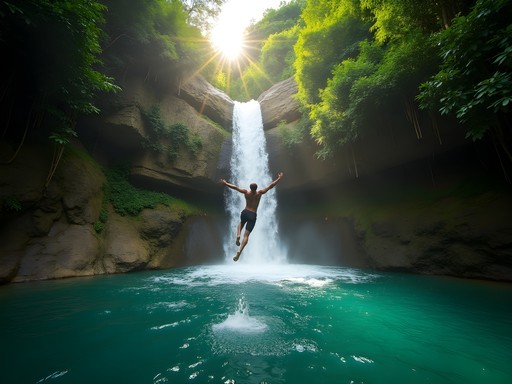
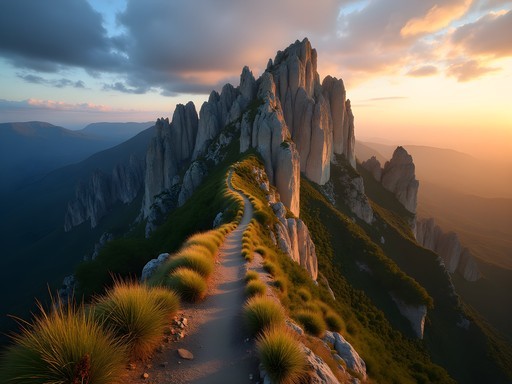
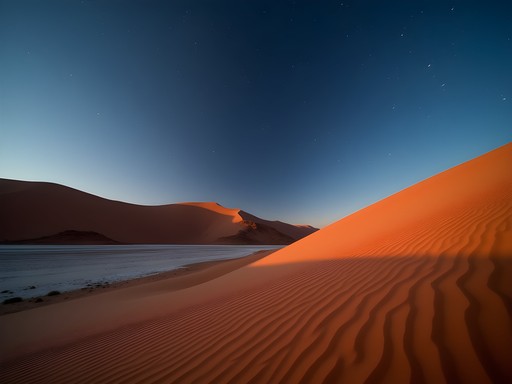
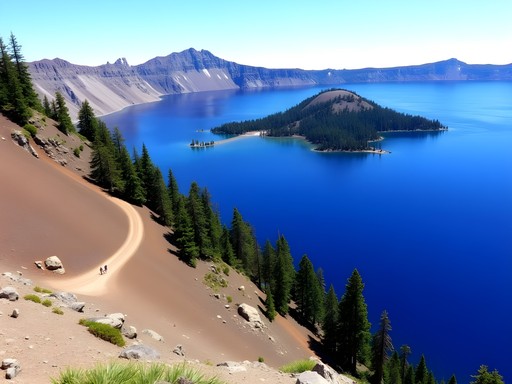
Comments
Claire Hawkins
Just returned from Yamoussoukro with my family and we followed Brian's recommendations for Lake Kossou. The boat trip was magical! Pro tip: there's a small family-run restaurant about 5km before you reach the main lake entrance - bright blue building, can't miss it. They serve the most incredible grilled fish with attieke. My kids are still talking about it! Also, we found a guide named Pascal who specializes in birdwatching tours around the sacred lakes - he speaks English, French and German and was amazing with the children.
Sophia Gomez
Brian, your post brought back so many memories! I visited the N'Zi River last year during the rainy season and the rapids were absolutely thrilling. For anyone considering the wilderness camping option - DO IT! Falling asleep to those night sounds was unforgettable. The local outfitter in Yamoussoukro (I think it was called Éco Aventures) provided everything we needed, even proper coffee for the mornings. Just be prepared for no cell service, which was actually a blessing. The fireflies along the riverbank at night were like something from a fairy tale.
moonzone1751
Marahoué National Park was the highlight of our trip! We saw elephants from a distance and so many monkeys. But Brian's right about it being forgotten - the facilities are pretty basic. Worth bringing extra water and snacks. The guide we had (Amadou) knew every bird call and animal track. If anyone's planning to go, December-January seemed like perfect timing - not too hot and the wildlife was active.
coolguy
Great post! Never knew Yamoussoukro had so much nature nearby!
wilddiver
Those sacred crocodile lakes sound incredible but also terrifying! Did you feel safe around them? Any tips for visiting with kids?
moonzone1751
We went with our 8 and 10 year olds last year. There's actually a viewing platform where you can safely watch the crocodiles. The local guides are super careful and know exactly how close you can get. Our kids loved it!
Claire Hawkins
I second what moonzone said! I visited with my nephew (7) and niece (9) and they were fascinated. The local guides are excellent at keeping everyone at safe distances. They also explain the cultural significance which adds so much to the experience. I'd recommend going early morning when the crocs are more active. And don't forget to bring your binoculars - they were perfect for spotting birds and watching the crocodiles from a comfortable distance!
greendiver
Just got back from Lake Kossou last month and it was AMAZING! Those sunsets over the water are unreal. We hired a local fisherman to take us out for a day trip and saw so much wildlife. The camping spots Brian mentioned near the eastern shore were perfect - quiet and pristine. Did anyone else notice how few tourists there were? Felt like we had discovered a secret spot!
Sophia Gomez
Same experience at Lake Kossou in February! Our guide Konan was fantastic - took us to a tiny village on the north shore where we had the most incredible fish lunch cooked by local women. Definitely felt off the beaten path in the best way possible.
greendiver
Oh nice! We didn't make it to the north shore. Adding that to my list for next time!
TravelBug_Jamie
How difficult was it to arrange transportation to these natural areas? Public transport or did you need to hire a driver?
Brian Sharma
For Lake Kossou and the crocodile lakes, shared taxis work well. Marahoué is trickier - I split the cost of a 4x4 with two other travelers I met at my hotel. The N'Zi River trips are best arranged through tour operators in Yamoussoukro - they handle all transportation.
TravelBug_Jamie
Perfect, thanks for the info! Hoping to visit in November.
AfricaDreamer
Those photos of Lake Kossou at sunset are absolutely stunning! Saved this post for future travel plans.
Nicole Russell
Brian! This post couldn't have come at a better time! I just got back from Yamoussoukro last month and completely agree about Lake Kossou being the hidden gem. I spent two amazing days kayaking there and saw so many birds I lost count! The local fishermen were incredibly friendly too - one even showed me how they make their traditional nets. One tip for anyone heading there: the road to Marahoué gets really rough during rainy season. I went with my waterproof daypack which saved my camera when we got caught in a downpour. Did you try that little restaurant by the N'Zi River? The one with the wooden deck overlooking the rapids? Their grilled fish was INCREDIBLE!
Brian Sharma
Nicole! So cool you just visited too! Yes, that restaurant - Chez François, right? The fish was amazing. And good call about Marahoué in the rainy season. I went during the dry period but heard those roads can become almost impassable when it rains.
wildtraveler92
Both of you have convinced me to add Yamoussoukro to my West Africa trip! Those kayaking opportunities sound perfect.
escapezone
Just got back from Yamoussoukro last week and followed your advice on the N'Zi River camping trip. What an experience! The stars were incredible and waking up to the sounds of the river was magical. Our guide Emmanuel was fantastic - he showed us how to spot hippo tracks and identify medicinal plants. The rapids were more intense than I expected though - definitely not for beginners! The local stew they cooked over the campfire was one of the best meals of our trip. Thanks for putting this on our radar - would have completely missed it otherwise.
Venture X
Premium card with 2X miles, $300 travel credit, Priority Pass